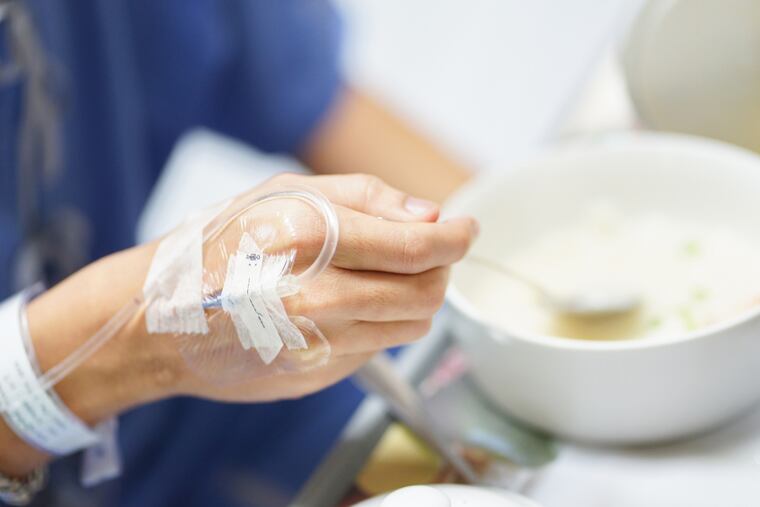Q&A: Maintaining your appetite during chemotherapy treatment
Without regular meals or proper nutrients, patients recovering from chemotherapy may experience loss of muscle mass and an inability to fight infection.

Q: I recently started chemotherapy. How do I maintain my appetite during treatment?
A: A cancer diagnosis and prescribed chemotherapy can be challenging. While effective, chemotherapy treatments can be hard on the body and often result in appetite changes.
Chemotherapy is medication that treats cancer by attacking fast-growing cancer cells, but it often kills or slows the growth of healthy cells, as well. Nausea, fatigue, and the buildup of waste products as a result of damage to healthy cells can lead to loss of appetite. Without regular meals or proper nutrients, patients recovering from chemotherapy may lose muscle mass and have a harder time fighting infection.
For those preparing for, or currently undergoing, chemotherapy treatments, a healthy appetite can boost strength, fight fatigue, and maintain your body’s nutrients. Simple changes to diet and eating habits can help you better tolerate chemotherapy-related side effects.
Eat small meals. Chemotherapy will likely reduce your urge to eat, but it is still important to eat throughout the day to receive nutrients and stay healthy. Many chemotherapy patients find it easier to eat small meals rather than larger portions. If you typically feel hungrier at certain times of the day, then schedule smaller meals between those times and hold yourself to it. If that time comes and you are not feeling hungry, then try to eat at least one high-protein food. Aim to eat every two to three hours during the day to meet your nutritional needs.
Eat cold food. Sensitivity to certain odors can increase during chemotherapy, so try eating yogurt, salads or cold sandwiches to avoid an adverse reaction from the smell of hot meals.
Drink liquids after eating. Avoid liquids with meals to keep from feeling full early, and drink water between your meals to avoid dehydration. If you’re losing weight, try adding high-calorie beverages such as smoothies and milkshakes to your diet.
Eat a high-protein, high-calorie diet. Keep in mind that our bodies need protein and calories to function properly. Consuming enough of both is key to helping your body heal itself. Incorporating extra protein helps build muscle, repair body tissue, and strengthen your immune system. Consider adding foods to your diet that are high in protein and calories, while avoiding fried or gassy foods such as broccoli and cabbage.
Foods high in proteins include:
Smoothies and other nutritious shakes
Fish, poultry and meats
Eggs
Beans and legumes
Milk and dairy products
Secondary foods high in calories include:
Gravy and sauce
Nuts and seeds
Whipped cream
Sour cream and cream cheese
Salad dressing and mayonnaise
Butter and margarine
Nausea and vomiting are unpleasant side effects of chemotherapy that affect most patients. To limit feelings of nausea, consider the following: avoid foods with strong odors, sit or lie down for two hours after eating and eat toast, crackers or other foods that are easy to digest. If necessary, your doctor may prescribe anti-nausea medication.
If you are undergoing chemotherapy, talk to your doctor and registered dietitian about how you can improve your appetite and manage the side effects of treatment.
Stephanie Clarke, RD, LDN, is a clinical nutrition manager at Nazareth Hospital and an advisory committee member at Mercy Cancer Center.